Grand Bazaar
One of the joys of visiting Istanbul is to get lost in the maze of the Grand Bazaar. I had heard lots of stories about this bazaar, about how men try to lure you into buying their merchandise, about how you have to bargain for everything you want unless you want to pay an exorbitant price, and how you are sometimes offered cups of tea during the negotiation.
If you look at the inscription on the entrance gates - Kapali çarşi is Turkish for "covered bazaar" - you'll see the date of inception, 1461. The Grand Bazaar was built before Christopher Columbus discovered America, just to give you an idea! At the apex of the Ottoman Empire, it was considered unrivalled in Europe for the quality and the wide range of goods available.
If you look at the inscription on the entrance gates - Kapali çarşi is Turkish for "covered bazaar" - you'll see the date of inception, 1461. The Grand Bazaar was built before Christopher Columbus discovered America, just to give you an idea! At the apex of the Ottoman Empire, it was considered unrivalled in Europe for the quality and the wide range of goods available.
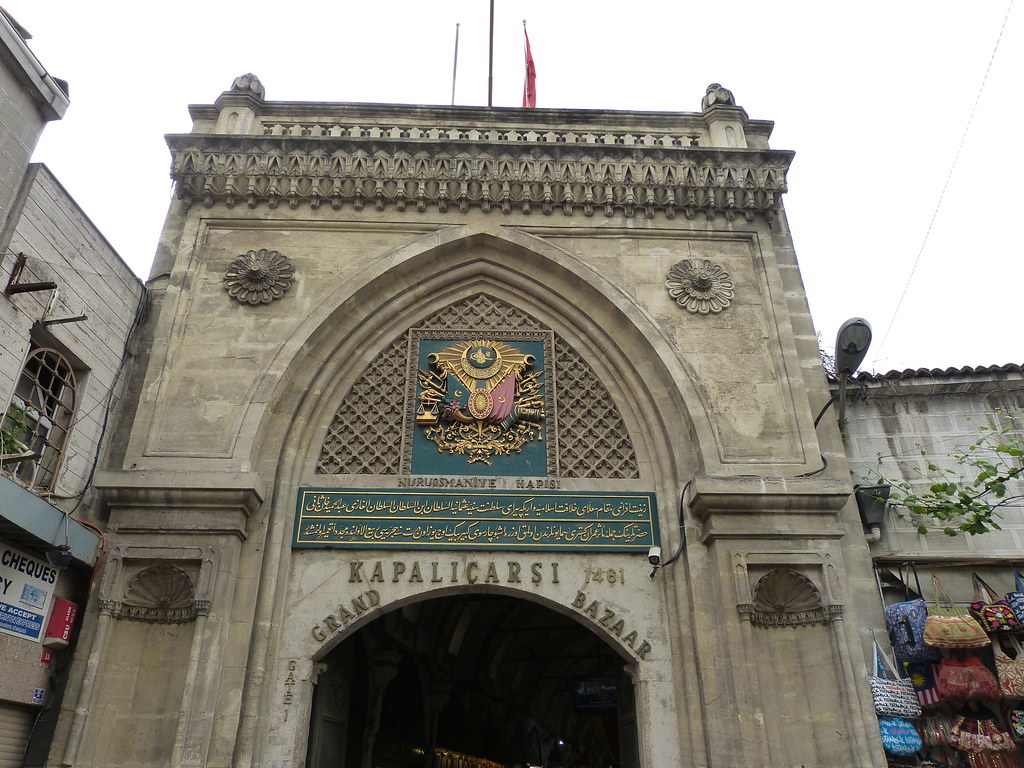 |
| One of the entrances to the Grand Bazaar |
Today the Grand Bazaar is a huge building with arched streets that resembles a shopping mall but is far more picturesque because it's so old. You can buy many things in here: scarves and clothes, shoes, pottery, carpets, jewels, leather bags, and so on and so forth. Every now and then you'll encounter a marble fountain, an ancient engraving or even a 17th-century wooden kiosk once used as a café.
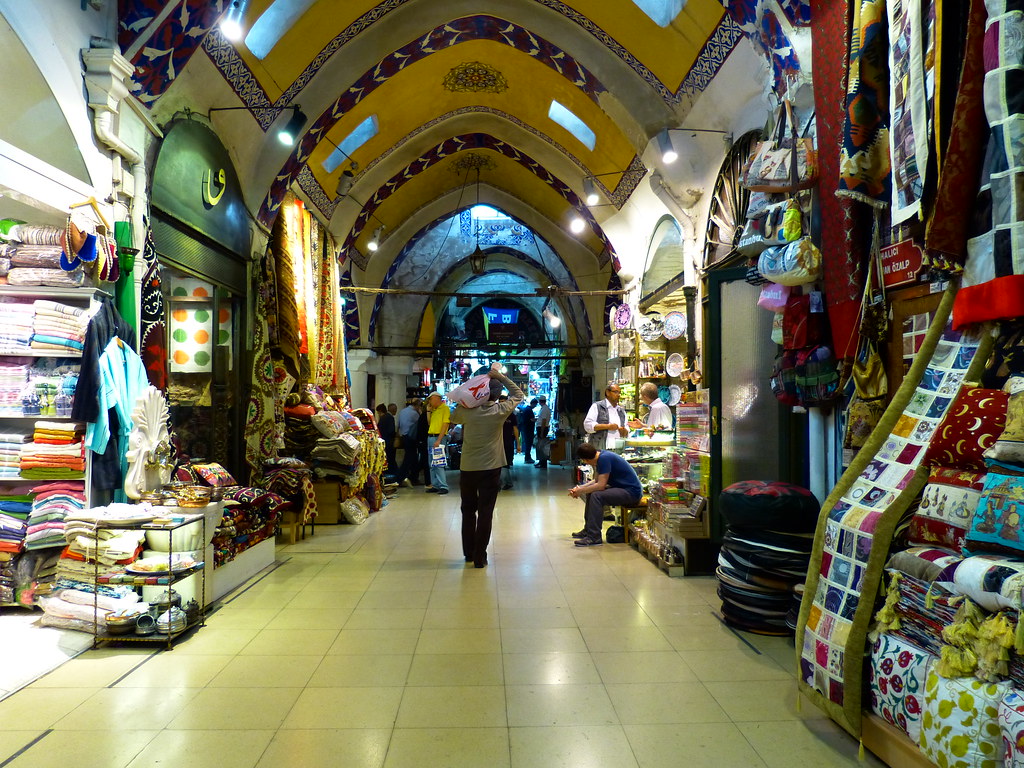 |
| Inside the Grand Bazaar |
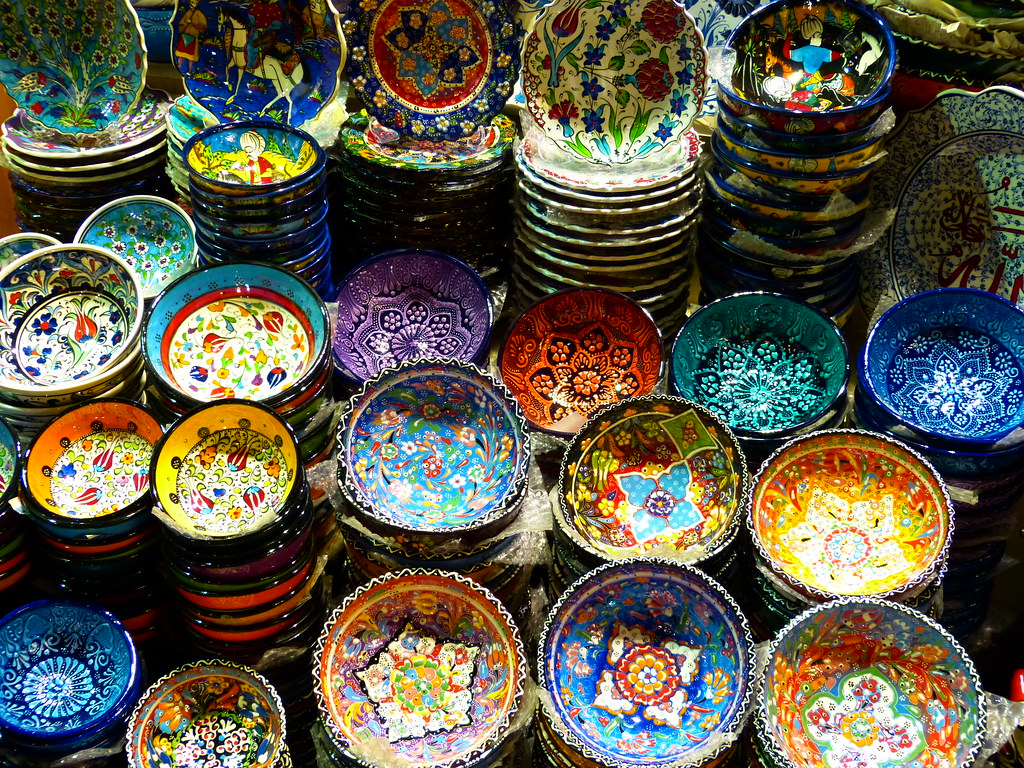 |
| Pottery at the Grand Bazaar |
Just look at these oil lamps: I wonder if a genie will come out if I rub one! I know that Turkey is not an Arabic country, but the temptation was too strong not to write this.
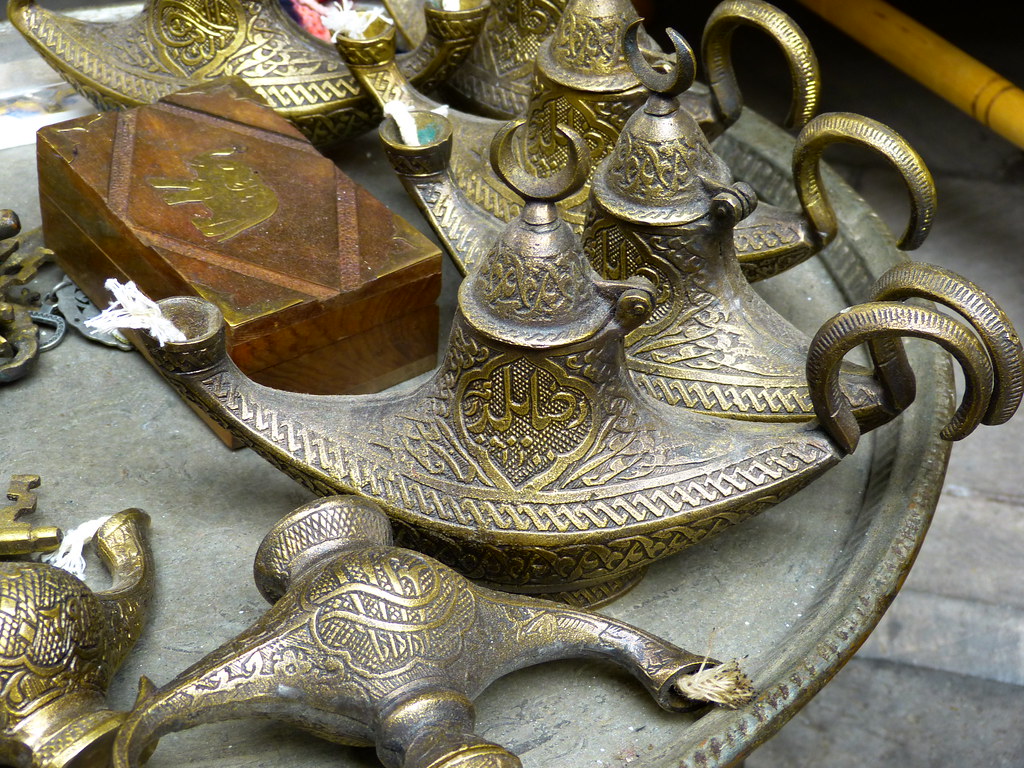 |
| Oil Lamps in the Grand Bazaar |
I had seen jewellery as astonishing as the one for sale in the Grand Bazaar in pictures taken in Dubai, but I didn't know that Istanbul also loved bling-bling!
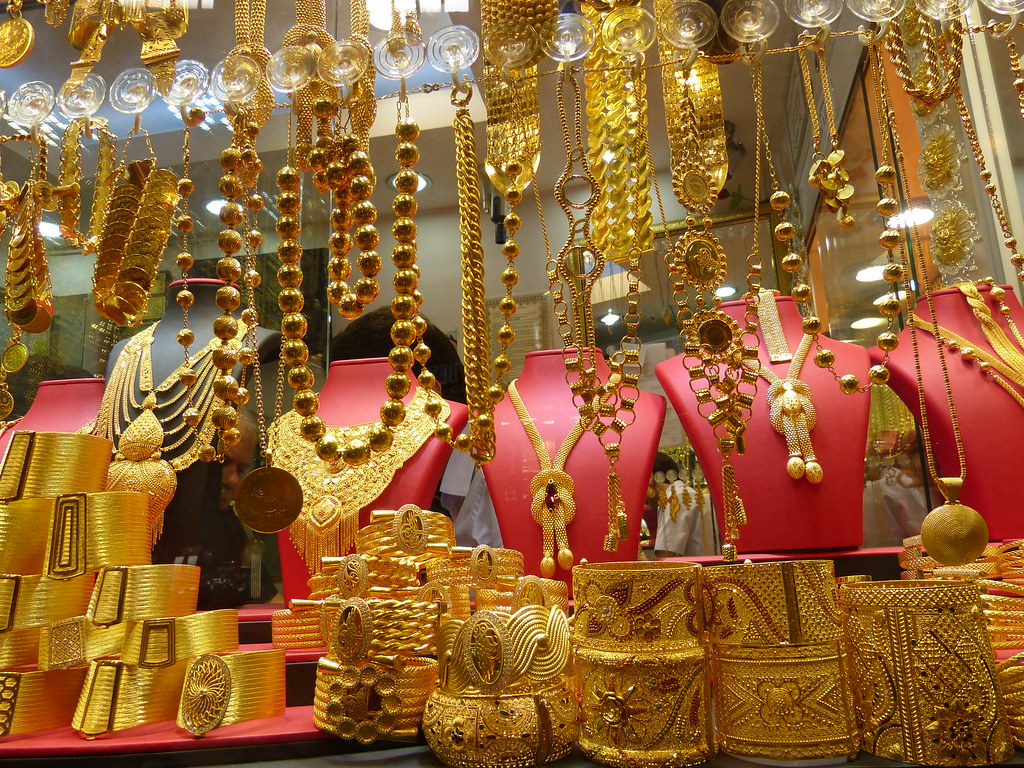 |
| Jewels in the Grand Bazaar |
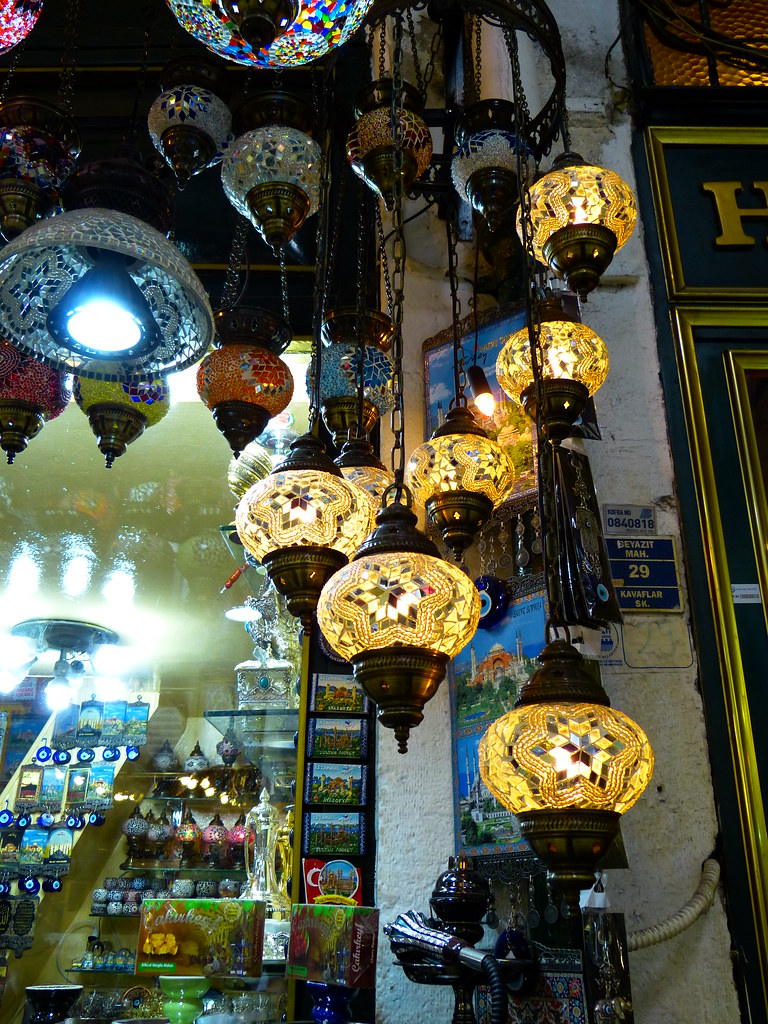 |
| White mosaic lamps inside the bazaar |
Also, I noticed that outside of the Grand Bazaar there are many streets where the market goes on, with stalls that are definitely less touristic, selling anything from T-shirts to plastic flowers. This is where locals prefer to shop. It was full to the brim of Turkish ladies shopping for cheap shoes, cheese, kitchen utensils, and food of course. There is a second-hand book bazaar near Beyazid Mosque, for example, that you should try not to miss. Apart from dusty Turkish books, they also sell Ottoman miniature pages.
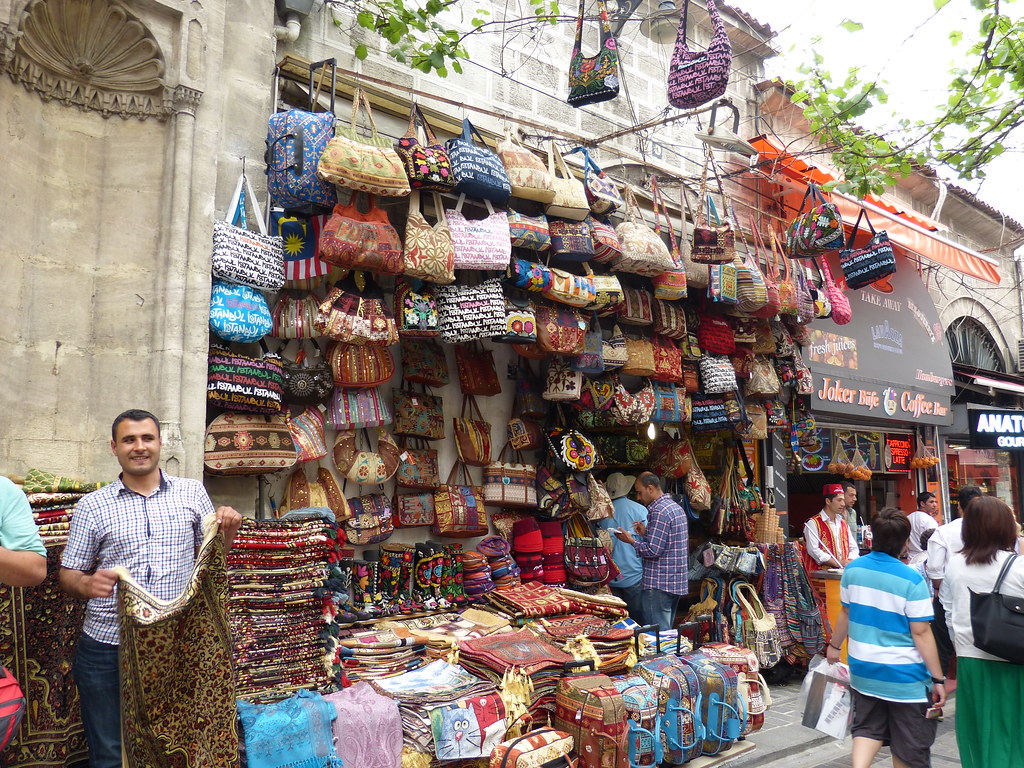 |
| Stall just outside of the covered bazaar |
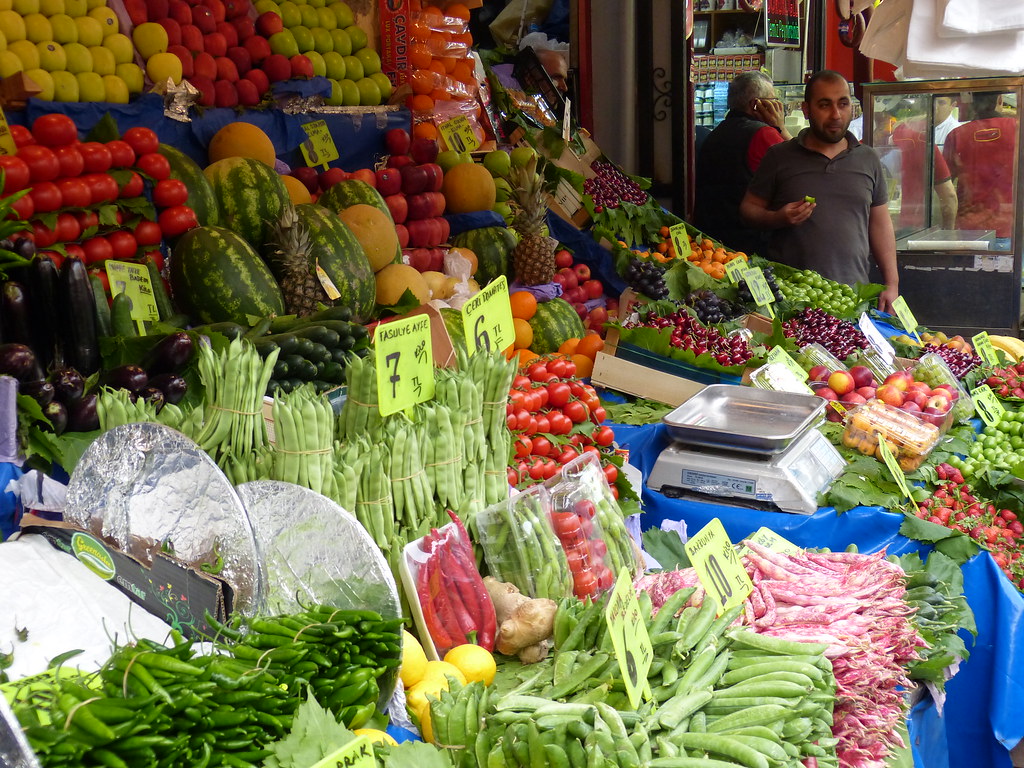 |
| Vegetables for sales near the Grand Bazaar |
The Spice Bazaar
What a marvel is the Spice Bazaar: here you can find the most exquisite of the spices but also the most ridiculous and invented spices ready made for naïve tourists. Tell me what the heck "olive oil spice" is, for example (it is the second spice from the left on the top shelf in this picture).
What a marvel is the Spice Bazaar: here you can find the most exquisite of the spices but also the most ridiculous and invented spices ready made for naïve tourists. Tell me what the heck "olive oil spice" is, for example (it is the second spice from the left on the top shelf in this picture).
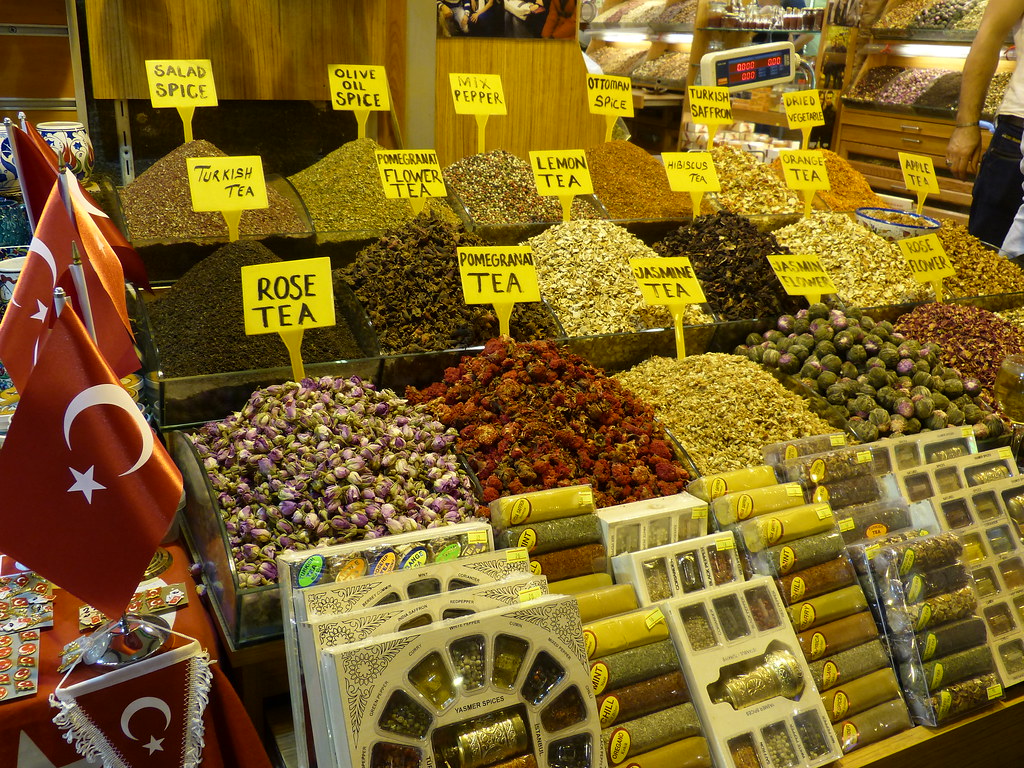 |
| Spices and Turkish flags |
Of course these are not the only bazaars in Istanbul. The city is full of open and covered markets, or of areas where people sell every kind of stuff. In the area near Süleymaniye Mosque , for instance, there is a less visited but equally interesting market and many shops with all kinds of things to buy, from antiques to tulip glasses to drink endless apple tea.
And you, have you visited more Istanbul markets? Tell me about it!
Ooooo, I would love visiting these bazaars! Thanks for sharing.
ReplyDeleteHappy travels :)
Stunning shots! Bazaars will be in my bucket list.
ReplyDeleteI did lots of haggling at the Grand Bazaar. Thanks for bringing back the memories!
ReplyDeleteYes, the bazaars of Istanbul are something really amazing!
ReplyDelete